Mother immunizes daughter against cholera as she fears she could die
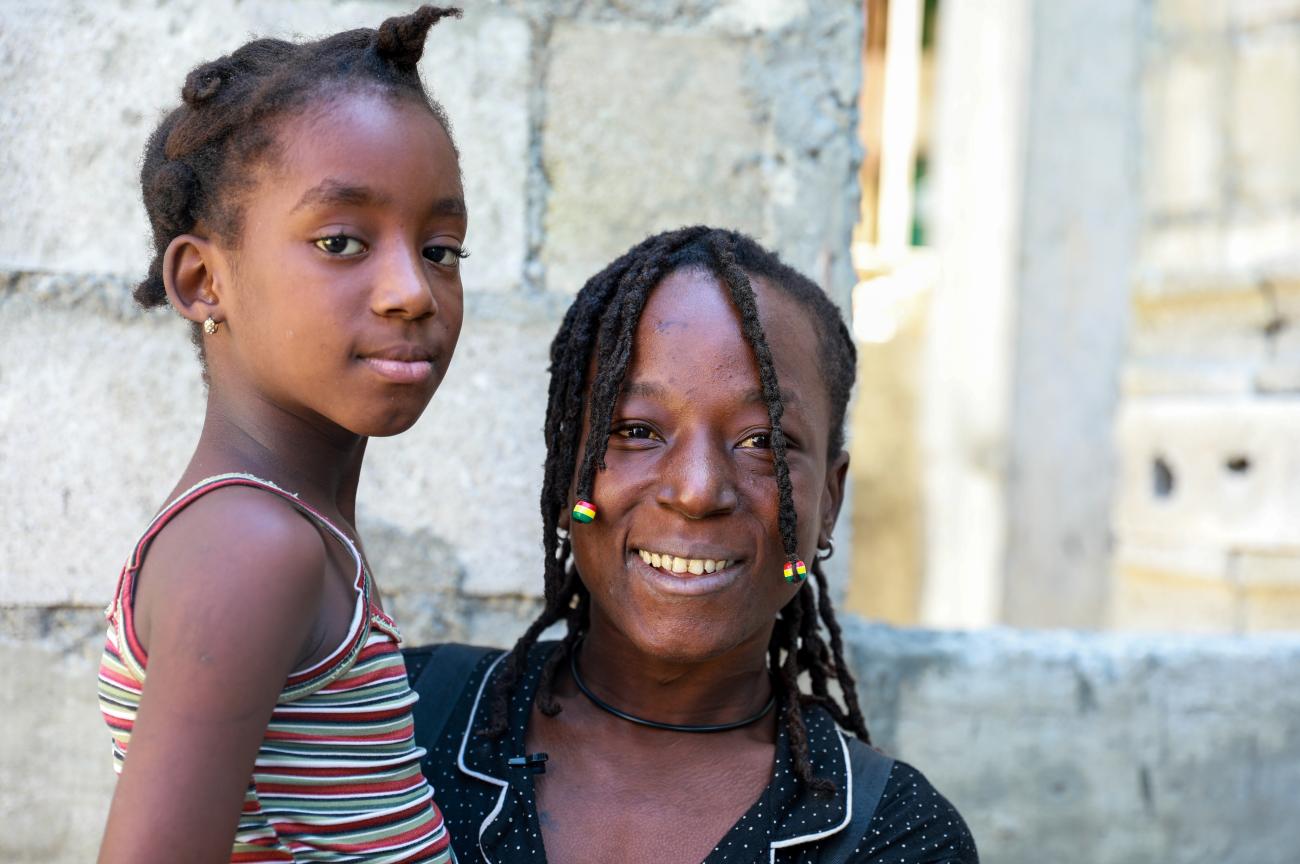
With UNICEF support, Haiti kickstarts campaign to immunize about 1.7 million people against cholera.
When cholera suddenly resurfaced early October in Haiti, mothers like Fabienne Francois feared for their lives and those of their children. The 24-year-old woman has only one child, Rebecca Maurice, and will do all she can to protect her from preventable diseases.
“I am afraid of cholera because there are many issues in this disease. It can kill you. Many people have already told me that some people have died due to the disease. I don’t want to lose my life, or to lose my daughter because she’s the only child I’ve got,” she says.
Fabienne arrived at the Cité Canada health centre in Turgeau, in the Haitian capital Port-au-Prince to immunize her daughter against cholera. The day before, she met with a vaccination team right after Haiti launched her cholera vaccination campaign and received the oral vaccine dose.
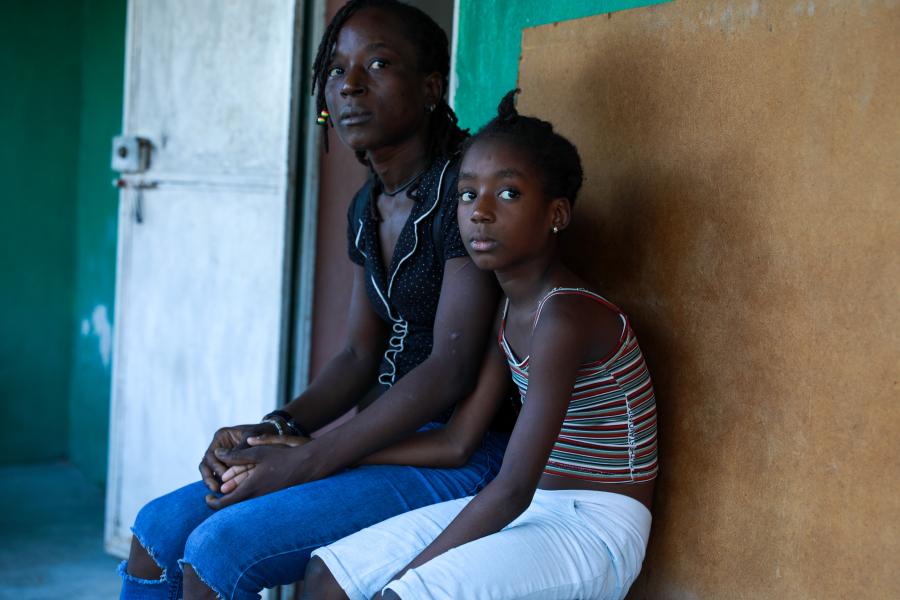
Cholera has killed 300 people in less than three months
With the support of the Pan American Health Organization (PAHO), Haiti received over 1,17 million oral cholera vaccine doses on 12 December and another 500,000 doses are expected to arrive in the coming weeks. Men, women and children over one year old who live five communes in Ouest and one in the Centre departments where more than 50 confirmed cholera cases had been reported when Haiti placed its cholera vaccination request, are targeted by the vaccination campaign.
The vaccination campaign is rolled-out to help curb the transmission of the disease. In less than three months, cholera claimed the lives of 300 people with over 1200 cases confirmed and nearly 15,000 suspect cases reported. Over 40 per cent of confirmed cases are reported among children under 14. So, Fabienne’s daughter aged nine is at risk.
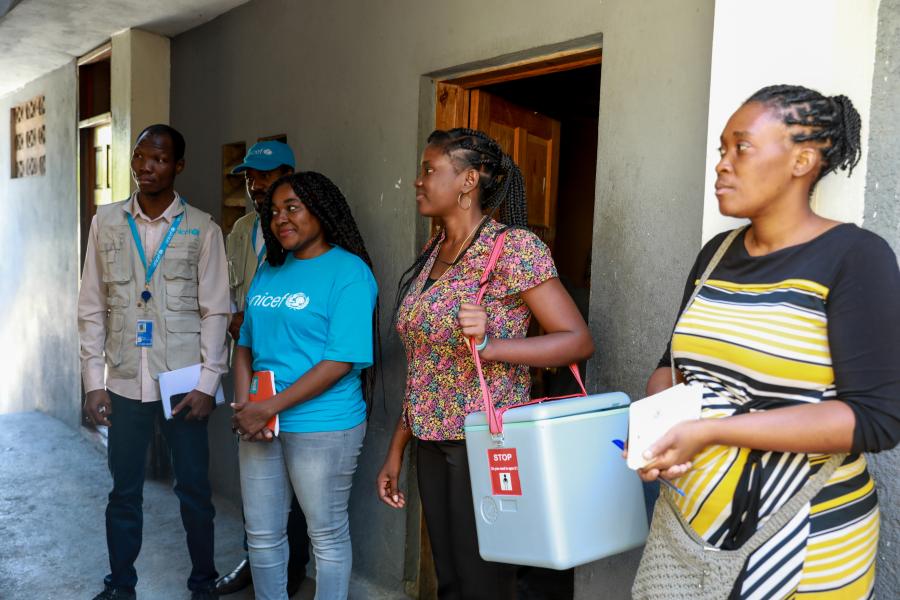
Life is tough in Haiti. Fabienne, like many other women, is impacted by gang related violence and recurrent social unrest that has brought economy to its knees. The single mother does not have job, and often relies on her parents to support her and her daughter.
In her neighbourhood, people talk about the devastating effects of cholera, and Rebecca fully understands why she should be vaccinated. “My mother has brought me here to take the vaccine against cholera. I’ve heard that people are dying, and I don’t want to die because I don’t want to lose my mother, my mother, and my grandmother,” she says.
Gang related violence could hamper cholera vaccination roll-out
UNICEF supports the Ministry of Health to dispatch the oral cholera vaccine doses across. However, with gangs blocking national roads, transporting the vaccines, and deploying teams are daunting tasks. Most of the population targeted by this cholera vaccination campaign live in Cité Soleil or Port-au-Prince where recurrent clashes between armed gangs continue to cause casualties among women and children.
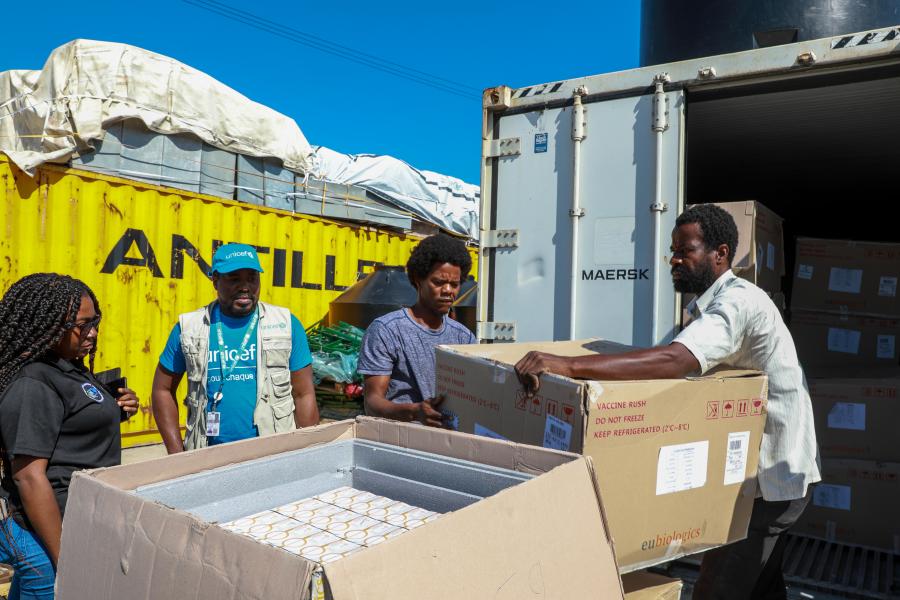
“The deadly disease of cholera kills more and more people in Haiti. The oral vaccine can protect thousands of people from the disease. But vaccination teams cannot reach communities while bullets are flying, or they risk being kidnapped. Vaccinators put their lives at risk to save women’s and children’s lives while they must have broad access to do their job”, says Bruno Maes, UNICEF Representative in Haiti.
UNICEF contributes to the provision of fuel to keep the cold room and the national vaccine depot of West Department operational, equips more than half of the vaccination teams with vaccine carriers to maintain the cholera vaccines at the right temperature, and ensures incinerators and garbage bags available to manage biomedical waste and reduce the risks of contamination.
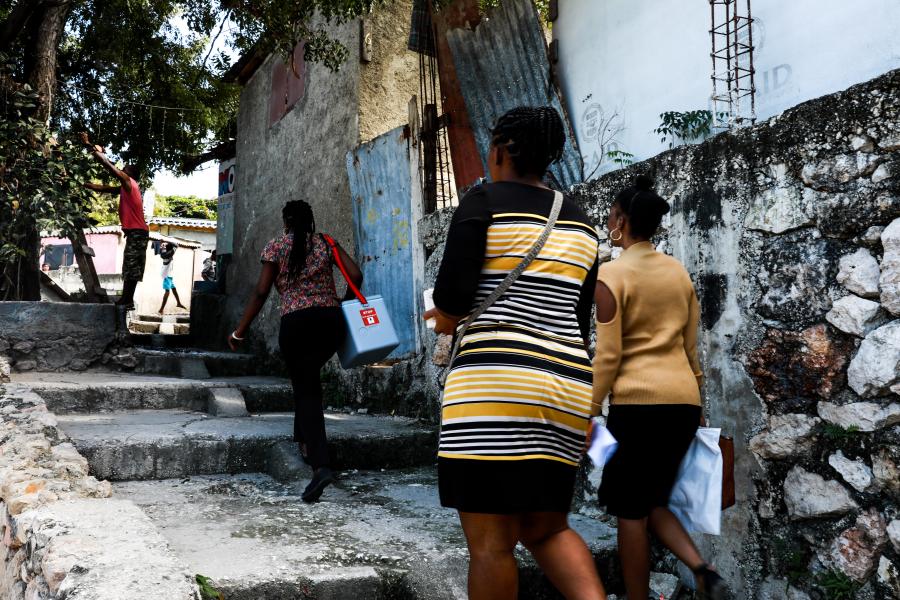
Some 2,300 vaccination teams were deployed from 18 to 28 December to allow 97 per cent of the target communes’ population receive the cholera vaccine to protect them from the disease and remain alive and healthy.
That’s exactly what Rebecca needs to unfold her full potential and achieve her dream. The little girl thinks for herself and even her mother does not really know what she dreams of. When she inferred that she’d become a lawyer in the future. “Lawyer? No way! I don’t want to be a lawyer,” she replied curtly.








